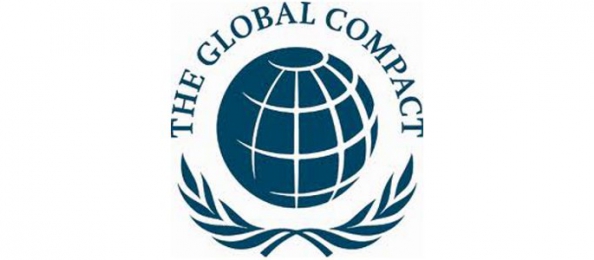Institutionalizing Global Governance – The Role of the United Nations Global Compact
Introduction
The United Nations Global Compact is now in its eleventh year of existence and with over 8,600 business and non-business participants in over 130 countries the largest corporate responsibility initiative in the world (Hemphill 2005, Kell 2003, 2005, Williams 2004, Global Compact 2010). Since its inception in 2000, the Compact has been both criticized and praised (Rasche & Kell 2010). On the one hand, critics argue that the initiative promotes vague principles and hence misses accountability (Deva 2006, Nolan 2005) leading to a situation where corporations can profit from the credibility and reputation of the UN (Banerjee 2007, Bigge 2004). On the other hand, the Global Compact also gained praise for its idea of linking the UN system with the private sector (Kell & Levin 2003, Ruggie 2002). Moreover, the initiative is often discussed as an innovative institutional solution to exercise global governance (Bremer 2008, Detomasi 2007, Kell 2005, Ruggie 2001). Thérien & Pouliot (2006: 2), for instance, argue that the initiative reflects an opportunity to come up with a new form of global governance that meets the contemporary challenges of globalization, while Bremer (2008: 232) suggests that the Compact can, at least partly, fill some of the omnipresent global governance gaps.
Global governance – by which we mean the collective governing of relationships by designing, developing, and implementing rules of behaviour that transcend national borders without sovereign authority (Finkelstein 1995: 369, Zadek 2008: 382) – is needed in a time where national boundaries become less relevant (Rosenau 1995), economic and social problems globalize (Crane & Matten 2004), and corporations increasingly turn into political actors (Scherer & Palazzo 2007, Scherer & Palazzo 2011). Considering this changing context, a traditional command-and-control type of governance through sovereign national authorities quickly reaches its limits, as it is not able to deal with the mushrooming of global interdependencies and the shifts in the loci of authority (Kahler & Lake 2003). Global governance calls for steering mechanisms that solve transnational problems in a collaborative fashion and thus produce a more reliable order across nations.
Although the claim that the Global Compact reflects one way to exercise global governance is a prominent one, the literature remains largely unclear why this is the case. The relation between global governance and the Compact is often described in rather vague terms. Ruggie (2001: 377), for instance, argues that the Compact is a “response to the challenge of closing global governance gaps”, while Kell & Levin (2003: 175) argue that the initiative stabilizes “the global governance system by strengthening its social and environmental pillars.” Such general statements obscure the link between global governance and the Global Compact and hence undermine our ability to further develop the initiative.
Discussing the relationship between global governance and the Global Compact is important and timely for at least two reasons: First, while there has been a lot of discussion on the need for global governance and the basic contours of the concept itself (Benner et al. 2005, Finkelstein 1995, Kahler & Lake 2003, Rosenau 1992, 1995), our knowledge about how global governance is exercised in the context of corporate responsibility remains quite limited. Discussing the Global Compact as one possible institutional solution to address global governance gaps, thus, offers a practical supplement to the existing conceptual discussion. Second, the Compact has been criticized for being without substance propagating vague principles and allowing corporations to ‘bluewash’ their damaged image (Deva 2006, Nolan 2005). Showing in how far the initiative reflects, at least in part, an attempt to effectively address global governance problems also legitimizes its existence and further development.
Considering the need to discuss the link between global governance and the Global Compact in more detail, our research goal is twofold: First, we aim to discuss why the Global Compact can be understood as an initiative that facilitates global governance. This discussion enables us to understand whether both phenomena are linked at all and, if they are linked, why and how this is the case. Second, we highlight implications of our analysis by showing how the Compact’s contribution to global governance can be enhanced. This discussion uncovers some of the initiative’s deficits from a new angle and paves the way for reflecting on future challenges.
Our analysis proceeds as follows: In the first section, we start by discussing what global governance means and why it is needed. We then outline three ideal characteristics of institutional arrangements supporting global governance: a multi-actor, multi-level, and network-based approach. Section two explains the fundamental idea underlying the Global Compact and discusses the rationale for its existence. In section three, we contrast the Compact with the identified distinctive characteristics of institutional arrangements for global governance. We critically discuss the initiative’s multi-actor, multi-level, and network-based approach and, based on this, make suggestions to further develop the Compact. In the last section, we draw conclusions and outline avenues for future research.
See the full Paper
Table of Content
- Global governance – beyond state-centred control
- The United Nations Global Compact
- The Global Compact and global governance
- Implications and conclusions
- References
Andreas Rasche is Professor of Business and Society at Copenhagen Business School and serves on the GC LEAD Steering Committee.
Dirk Ulrich Gilbert is Professor of Business Ethics at the University of Hamburg.
About Us // Privacy Policy // Copyright Information // Legal Disclaimer // Contact
Copyright © 2012-2018 macondo publishing GmbH. All rights reserved.
The CSR Academy is an independent learning platform of the macondo publishing group.









